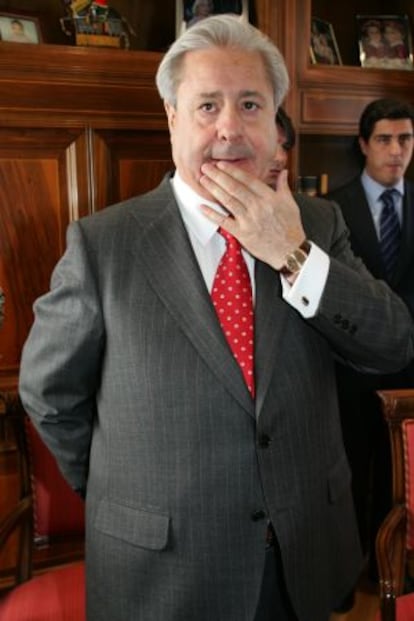Spanish builder takes his African mega-project snub to World Bank
Equatorial Guinea rejects massive housing development as "unreal"

Colorful Spanish real estate developer Francisco Hernando Contreras, aka "El Pocero," (the Drain Man), has previous in building mega complexes that lie half-empty as eloquent monuments to human greed and folly.
Hernando was the man behind the El Quiñón housing development near Seseña, some 37 kilometers south of Madrid. He originally planned to build 13,000 apartments there during a massive property boom in Spain, but abandoned the project after building only some 5,600 units, accusing Seseña's mayor of paralyzing the project with red tape, and describing an anti-corruption probe by the state prosecutor into the development as a "political campaign."
Some 2,000 units of the housing project remain unsold years later. The country's banks were saddled with the unoccupied property in part-exchange for writing off some 800 million euros in debt and are now desperately trying to offload them at bargain-basement prices.
Undaunted, El Pocero, a man with scant formal education who came to epitomize the excesses of Spain's giddy housing boom, continued to look for mega projects elsewhere, and thought he had persuaded the authorities in Equatorial Guinea, a former Spanish colony in West Africa, to take the bait - only for them to get cold feet.
An aggrieved Hernando has sought redress through his lawyers with the World Bank's International Center for Settlement of Investment Disputes (ICSID), with whom he filed a suit on March 23. El Pocero's lawyers declined to provide details of the legal action under the "strict rule of confidentiality," habitual in arbitration cases carried out by ICSID. EL PAÍS also tried unsuccessfully to obtain more details on the case from Hernando's company.
Attracted by the riches generated by Equatorial Guinea's oil reserves, Hernando planned a housing complex with 36,000 units, accompanied by sporting facilities and industrial parks in the former Spanish colony. Half of these housing units were meant to be built in the capital Malabo, and the rest on the coastal city of Bata, in a country about the size of Badajoz province in the southwest of Spain with a total population of 700,000.
Hernando wanted to bring the workers and the material for the project from Spain for an investment calculated in the order of one billion euros.
Despite his good contacts with some members of President Teodoro Obiang's dictatorial regime, after making El Pocero wait a long time, Obiang declined to fund the project.
In remarks to Spanish daily El Economista, Equatorial Guinea's deputy finance minister, Melchor Esono, explained the government's reasons for rejecting El Pocero's "unreal" pharaonic vision. "We want serious Spaniards here," the official said. "The government's money is not for creating ghost cities."
Tu suscripción se está usando en otro dispositivo
¿Quieres añadir otro usuario a tu suscripción?
Si continúas leyendo en este dispositivo, no se podrá leer en el otro.
FlechaTu suscripción se está usando en otro dispositivo y solo puedes acceder a EL PAÍS desde un dispositivo a la vez.
Si quieres compartir tu cuenta, cambia tu suscripción a la modalidad Premium, así podrás añadir otro usuario. Cada uno accederá con su propia cuenta de email, lo que os permitirá personalizar vuestra experiencia en EL PAÍS.
¿Tienes una suscripción de empresa? Accede aquí para contratar más cuentas.
En el caso de no saber quién está usando tu cuenta, te recomendamos cambiar tu contraseña aquí.
Si decides continuar compartiendo tu cuenta, este mensaje se mostrará en tu dispositivo y en el de la otra persona que está usando tu cuenta de forma indefinida, afectando a tu experiencia de lectura. Puedes consultar aquí los términos y condiciones de la suscripción digital.








































